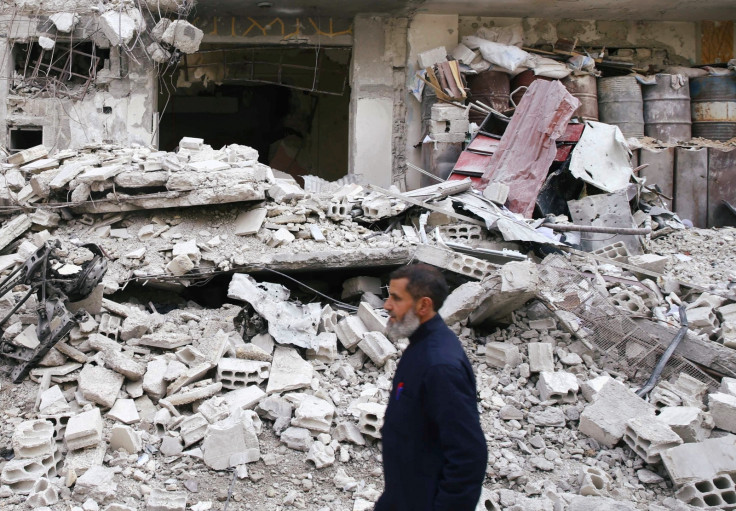Damascus accused of launching deadly chlorine gas attack in Ghouta after UN ceasefire fails
The UN Security Council had ordered a ceasefire.
Opposition activists have claimed that the Syrian government launched a deadly chlorine gas attack in the rebel-held area of eastern Ghouta.
The Syrian Observatory for Human Rights says a child aged three was killed and at least a dozen were suffering from breathing difficulties after aircraft allegedly attacked the town of al Shifuniyah.
A doctor who treated those who had been taken to hospital said the child died of asphyxiation and that the patients he dealt with were victims of "chemical weapons, probably a chlorine gas attack", Sky News reported.
The Syrian American Medical Society, a US-backed organisation, said those being treated showed symptoms of falling victim to chemical compounds.
A statement by the opposition Syrian Interim Government's Ministry of Health said: "At least 18 victims were treated with oxygen nebulising sessions," Reuters reported.
The Syrian regime denies using chemical weapons but has been accused of recent chlorine gas attacks recently, including two in January in eastern Ghouta. Moscow, which supports Bashar al-Assad, has accused rebels of preparing toxic agents which they could later use to accuse Damascus of employing chemical weapons.
But regime airstrikes and clashes have rocked Ghouta with a UN-ordered ceasefire adopted on Saturday falling at the first hurdle.

Airstrikes on Sunday (25 February) killed at least 14 civilians, bringing the week's death toll to at least 530, including 130 children.
The UN resolution for the ceasefire does not apply to the jihadist group Nusra Front, a former Al Qaeda affiliate, with concerns growing that this exemption is being exploited by Damascus to continue its bombardment on Ghouta.
Aron Lund, from the Century Foundation, said the Nusra Front only had a small presence in Ghouta and that it "is internationally designated as a terrorist faction and it is present in the area, although it is a small group compared to these two big ones.
"They're not wrong saying that group is there. They are however overstating its importance for political reasons," he told ABC.






















